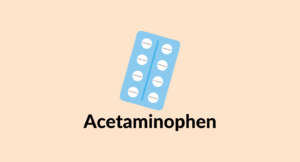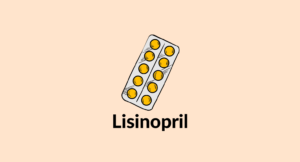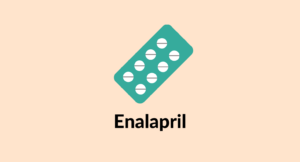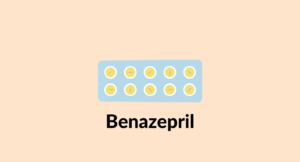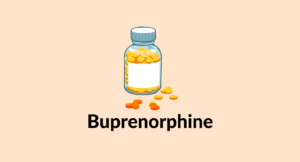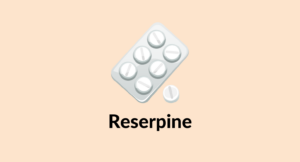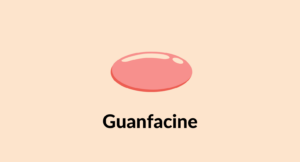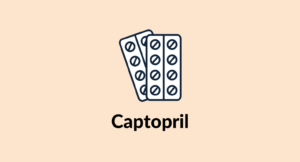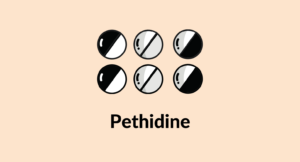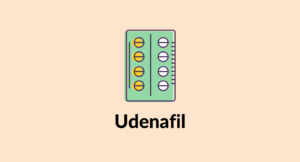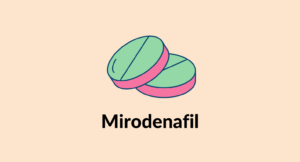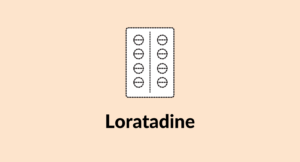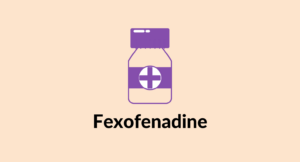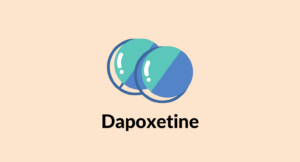Does CBD Interact With Escitalopram (Lexapro)?
Escitalopram (Lexapro) is an antidepressant of the serotonin reuptake inhibitor (SSRI) class.
It’s used to treat depression, anxiety, and obsessive-compulsive disorder.
CBD may slow down the metabolism of escitalopram and lead to its excess accumulation in the body, making it more potent but more liable to cause unwanted side effects.
Can CBD and escitalopram be taken together safely?
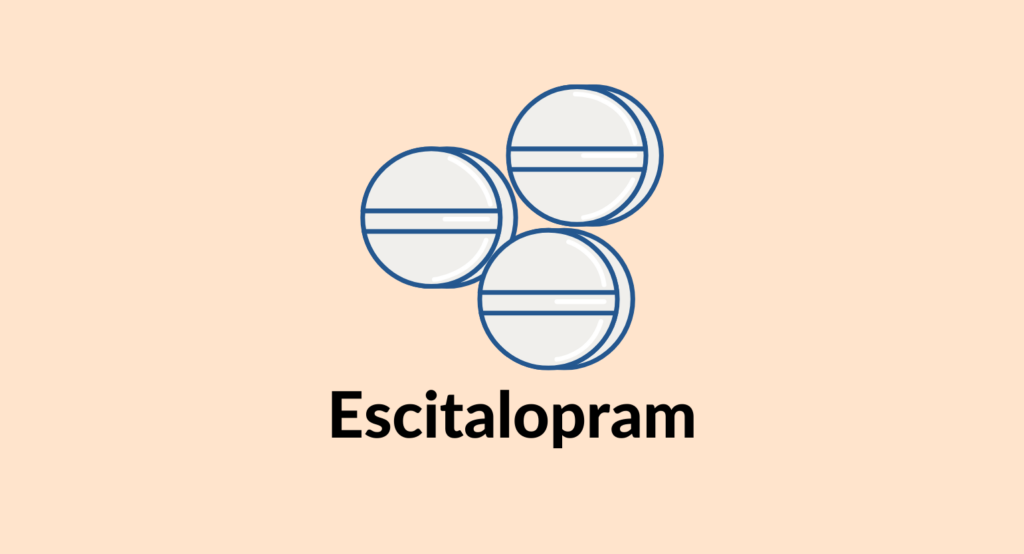
Does CBD Interact With Escitalopram (Lexapro)?
CBD (cannabidiol) may interact with escitalopram (Lexapro). There are two ways by which CBD and escitalopram can act:
1. Slowed Elimination (Metabolic Inhibitor)
CBD can slow the metabolism of escitalopram and consequently increase its concentration in circulation.
Metabolic inhibition occurs when two drugs get metabolized by the same enzymes. Hence, they compete against each other for the said enzymes, slowing down the metabolism of one or both drugs.
Escitalopram is metabolized by CYP2C19, CYP2D6, and CYP3A4 enzymes. These same enzymes metabolize CBD as well.
CBD also has the additional feature of inhibiting these enzymes. Therefore, taking escitalopram and CBD together could slow down the metabolism of the former, leading to an unhealthy accumulation of this compound in the body [1].
It could lead to more side effects of escitalopram such as headache, nausea, drowsiness, etc.
There is a possibility that an excess of taking these two drugs together could give rise to serotonin syndrome, a condition where the body has too much amount of serotonin.
2. Increased Effect (Agonistic Interaction)
CBD can interact with escitalopram agonistically as well.
Agonistic interaction happens when two drugs have a similar effect on the body. They work on the same receptors causing the effects in the same direction.
Both escitalopram and CBD act on the central nervous system (CNS). While escitalopram acts by increasing the levels of serotonin, CBD acts by neuromodulation. Although their mechanism of action is different, they both have similar anxiolytic and antidepressant actions when consumed.
If taken together, the actions of these substances could have a synergistic effect. However, this may also cause an exaggeration in the intended effects leading to symptoms such as drowsiness and lethargy.
Other Names For Escitalopram
Escitalopram is sold under many different names. All share the same risk and potential interactions.
Other names for escitalopram (Lexapro) include:
- Cipralex
- Jolivel
- Cilentra
- Elorpax
- Nexito
- Stalopram
- Senspram
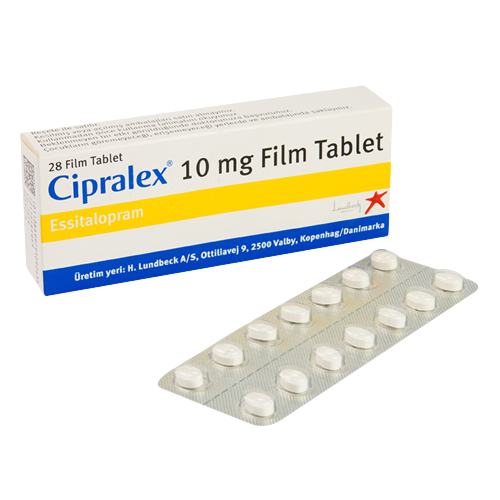
Similar Medications: CBD & Escitalopram (Lexapro)
Escitalopram (Lexapro) is classified as a selective serotonin reuptake inhibitor (SSRIs). CBD and SSRIs all share similar risks for interaction and side effects.
Here’s a list of similar medications that share a similar level of risk when combined with CBD:
- Citalopram (Cipramil and Celexa)
- Dapoxetine (Priligy)
- Fluoxetine (Prozac, Rapiflux, Sarafem, Selfemra, and Oxactin)
- Fluvoxamine (Faverin)
- Paroxetine (Seroxat)
- Sertraline (Lustral)
- Vortioxetine (Brintellix)
Is It Safe to Take CBD & Escitalopram (Lexapro) Together?
While the risk of interaction with CBD and escitalopram is low, it’s not impossible. The potential side effects from this interaction can be severe, which make it a bad idea to combine these drugs unless you’ve consulted with your prescribing doctor first.
The interaction between CBD and escitalopram is considered moderate.
Is CBD a Viable Alternative to Escitalopram (Lexapro)?
CBD could be a viable alternative to escitalopram (Lexapro), but not if you’re currently using escitalopram.
CBD can help with depression and anxiety and might even help with OCD, but it might not be enough for some people.
If you’re currently using an antidepressant, you have to talk to your doctor about using CBD. Never adjust your dose or add CBD on your own.
CBD may act as an antidepressant as per some studies on animal models [2]. It may possess fast-onset and sustained antidepressant effects through molecular changes in the brain cells and interactions with various neurotransmitters.
Via similar pathways, CBD may also decrease symptoms of anxiety and anxiety disorders [3].
What Is Escitalopram (Lexapro)?
Escitalopram (Lexapro) is an antidepressant of the selective serotonin reuptake inhibitor (SSRIs) family.
It is an FDA-approved prescription drug that’s used as a treatment for major depressive disorder (MDD), generalized anxiety disorder (GAD), and other psychiatric disorders such as obsessive-compulsive disorder (OCD).
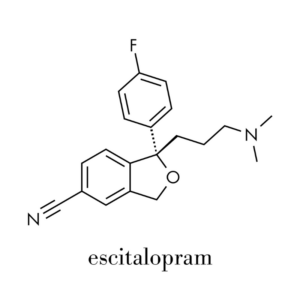
Escitalopram Specs:
| Drug Name | Escitalopram |
| Trade Names | Lexapro, Cipralex, Jolivel, Cilentra, Elorpax, Nexito |
| Classification | Selective Serotonin Reuptake Inhibitor (SSRIs) |
| CYP Metabolism | CYP2C19, CYP2D6, and CYP3A4. |
| Interaction With CBD | Metabolic competitor |
| Risk of Interaction | Moderate |
What Does Escitalopram (Lexapro) Do?
Escitalopram (Lexapro) works as an antidepressant and an anxiolytic by stopping the serotonin (5-HT) reuptake in the brain.
Serotonin stabilizes the mood, happiness, and feeling of well-being in the body. Studies have found that the level of serotonin in the brain is lower in people with depression. This action could lead to the effects commonly experienced in depression, such as low mood, lack of interest in previously enjoyable activities, etc.
Escitalopram increases the level of serotonin in the brain by stopping its reuptake into the presynaptic neuron. It binds to the orthosteric or the primary binding site on the serotonin transporter (SERT). SERT is the same site where the endogenous serotonin binds. By binding to the SERT, escitalopram thus prevents the reuptake of serotonin. Escitalopram has almost no affinity at other receptors such as histamine and muscarinic receptors.
Escitalopram is the S-enantiomer of racemic citalopram. It is nearly 150 times more potent than citalopram’s R-enantiomer and is responsible for most of the citalopram’s activity. Of all the SSRIs, escitalopram has the highest selectivity for the serotonin transporter. It means it has the lowest rates of adverse effects as compared to other drugs of SSRI. It is also more efficacious and has a faster onset compared to other SSRIs.
Escitalopram, like other SSRIs, can cause abnormal bleeding. Patients at risk of bleeding or those receiving other serotonergic drugs need to be highly cautious.
Side Effects of Escitalopram (Lexapro)
The following list includes the most common side effects of escitalopram:
- Headache
- Nausea
- Ejaculation disorder
- Somnolence
- Insomnia
- Dry mouth
- Constipation
- Fatigue
- Diarrhea
- Indigestion
- Decreased appetite
- Vomiting
- Lethargy
- Weight gain

Key Takeaways: Is It Safe to Take Escitalopram (Lexapro) With CBD?
CBD carries a moderate risk of interaction with escitalopram by slowing down the metabolism of escitalopram in the body and acting synergistically with its antidepressant effects.
This may increase the potency of escitalopram by increasing its concentration in the body.
Always discuss new supplements with your doctor if you’ve been prescribed any medications, including escitalopram.
In most cases, CBD won’t interact with SSRIs. However, in rare cases, this combination could result in serious side effects.
References
- Anderson, L. L., Doohan, P. T., Oldfield, L., Kevin, R. C., Arnold, J. C., Berger, M., … & McGregor, I. S. (2021). Citalopram and cannabidiol: in vitro and in vivo evidence of pharmacokinetic interactions relevant to the treatment of anxiety disorders in young people. Journal of clinical psychopharmacology, 41(5), 525-533.
- Silote, G. P., Sartim, A., Sales, A., Eskelund, A., Guimarães, F. S., Wegener, G., & Joca, S. (2019). Emerging evidence for the antidepressant effect of cannabidiol and the underlying molecular mechanisms. Journal of chemical neuroanatomy, 98, 104-116.
- Shannon, S., Lewis, N., Lee, H., & Hughes, S. (2019). Cannabidiol in anxiety and sleep: a large case series. The Permanente Journal, 23.
Signup to our newsletter
Be the first to know about our newest arrivals and special offers!
